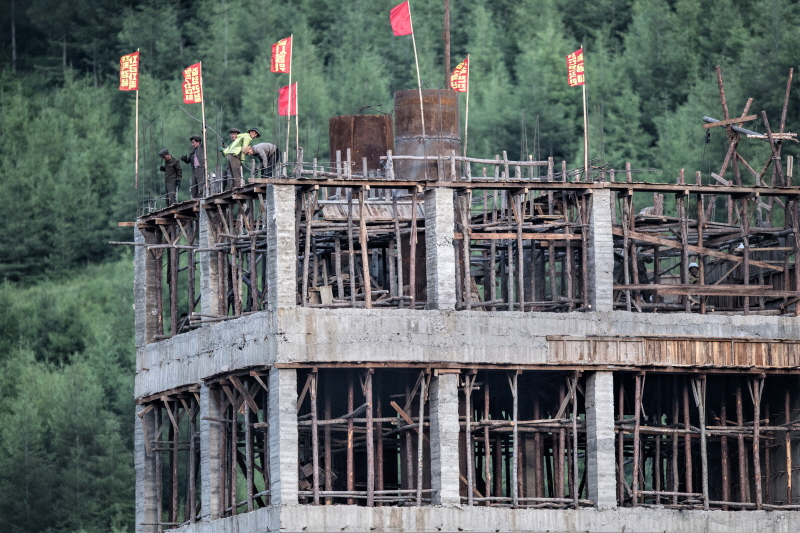A growing number of men in their 30s from Pyongyang and other major North Korean cities are reportedly seeking opportunities to be dispatched to Russia as foreign laborers, often resorting to paying bribes.
Since the onset of the Ukraine war, military cooperation between North Korea and Russia has expanded, alongside increasing economic and cultural ties. In June, the two nations agreed to build a bridge over the Tumen River for vehicular traffic. Additionally, starting December 15, regular passenger trains are set to run three times a week between Russia’s Khasan and North Korea’s Rason.
A Pyongyang-based source told Radio Free Asia (RFA) on September 25, “The number of people hoping to go to Russia as foreign currency-earning laborers has significantly increased recently. Interest in this type of work, which had been quiet for some time, is surging again as relations with Russia improve.”

The source explained that many young men in their 30s are eager to work abroad because, despite the hardships of being away from home for years, they can earn money that is otherwise unimaginable in North Korea.
“Until now, most foreign laborers were sent to China, where women were mainly employed in garment and seafood processing industries,” the source said. “Unlike China, however, men are primarily sent to Russia, where they work in sectors such as construction, logging, and mining.”
According to RFA, given the nature of the work in Russia, which typically involves physically demanding jobs, healthy young men are often selected for these assignments. The source also revealed that some individuals are bribing their way into foreign labor roles.
“A friend of mine bribed officials to join the second construction company under the Foreign Construction Guidance Bureau and is now waiting for deployment after completing all the selection and review processes,” the source said. “There has been a noticeable increase in young people gathering around the bureau’s offices recently.”
A separate source from North Hamgyong Province confirmed the growing demand for overseas labor assignments. “It’s not just one or two people who want to go to Russia as foreign currency-earning laborers,” the source told RFA. “I know two men who have completed their medical examinations and background checks and are now waiting for their dispatch dates. Everyone around them is envious.”
According to this source, Pyongyang residents are given priority for overseas labor positions, so those from rural areas often have to offer significant bribes to be selected. One of the selected individuals reportedly paid $800 to a provincial party official.

Most North Koreans sent to Russia prefer construction jobs over logging because construction work is considered less dangerous, and it allows them to stay in urban areas, where they can earn extra money through side contracts, the source explained.
One North Korean laborer who returned after five years in Russia was able to purchase a two-room apartment—something that would be impossible for the average citizen to achieve, even after a lifetime of work in North Korea, according to the source. “That’s why, despite the challenges, people are desperate to work abroad as foreign currency earners,” the source added.
According to RFA, North Korean laborers in Russia reportedly earn about $100 a month. After saving diligently, they return home after three years with $3,000 to $5,000 in hand.
To put this in perspective, the average monthly wage in North Korea is only $3 to $6, meaning it would take 70 to 80 years to accumulate the same amount domestically without spending any money.
According to a report by the UN Panel of Experts on North Korean sanctions released earlier this year, around 100,000 North Korean laborers are still being sent abroad to earn foreign currency in more than 40 countries, including China and Russia.
The dispatch of North Korean laborers overseas for foreign currency-earning purposes is a violation of UN Security Council Resolution 2397, adopted in 2017.
BY YOUNGNAM KIM [kim.youngnam@koreadaily.com]




